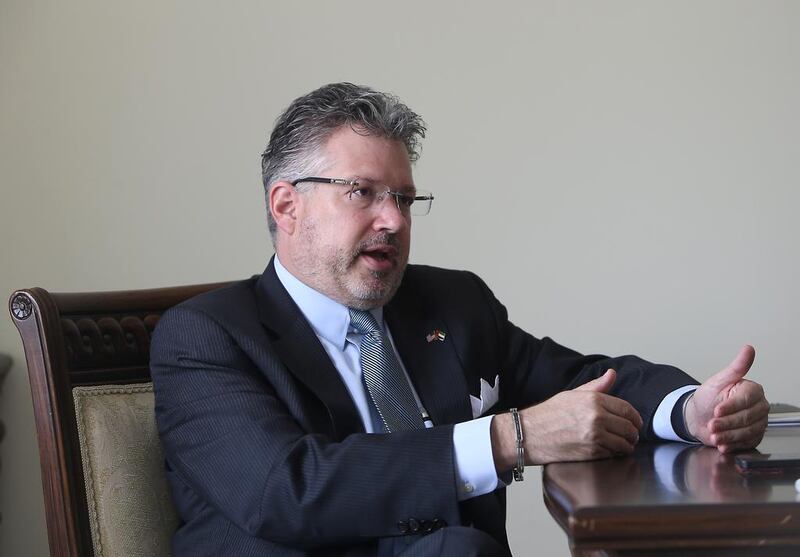ABU DHABI // Healthcare centres say they are at risk of closure and have fired staff to cut costs and continue caring for critically ill patients following the launch of a co-payment scheme for Emiratis.
Chief executives of private medical businesses urged the Government to “rethink” its decision that Emiratis who suffer long-term illnesses must pay 20 per cent of the fees on services as other citizens must.
The scheme took effect on July 1. Hundreds of people complained to the Health Authority Abu Dhabi that they cannot afford to pay fees that can amount to Dh60,000 or more per month.
Patients at government hospitals are not affected by the rule.
Daman, the national health insurance company, warned that contracts with private firms will be cancelled if they do not collect the co-payment fee.
Daman and Haad will not make exceptions to the rule.
Many providers deemed it unethical to discharge critically ill patients who cannot pay, but uncertainty remained as to how they will put the new ruling into effect and how patients will pay.
Meanwhile, home care providers said that without changes they will be forced to stop sending nurses to care for patients who may have to pay their share of up to Dh2,800 per day.
Dr Howard Podolsky, chief executive of Cambridge Medical and Rehabilitation Centre, said that in spite of the losses, patient care will not be compromised.
He was informed on Monday that out of more than 100 Emirati long-term patients there, none could afford to pay.
“We will continue to provide care,” said Dr Podolsky.
His centre laid off 30 staff as it tried to manage the situation.
“If we take the worst-case scenario being that hundreds of patients can’t pay, then I fear there maybe further layoffs,” he said.
“We continue to hold out hope that the Government will reconsider the copay for long-term care and acutely-ill patients.”
Clancey Francisco Po, chief executive of Burjeel Hospital, also urged the Government to consider exemptions.
He said the decision was right to a degree, and that “despite it hurting the private sector, it was required”.
“Having said that, there are few areas, especially dialysis, long-term care, home care and even IVF, where the country should look into [reconsidering the copay].”
He said his company may have to reconsider plans for a billion-dollar hospital in Mohammed bin Zayed City.
Dr Podolsky said he was worried that private investors would take a “second look” before investing in the emirate’s healthcare sector.
ProVita International Medical Centre, which cares for hundreds of long-term Emirati patients, said it has pledged that no staffing changes would be made until the end of the year.
“So many of our employees have family in South-East Asia and parts of the Arab world who rely on this money for their day-to-day lives,” said Michael Davis, the centre’s chief executive.
“So it’s not just the lives of our employees, it’s the lives of their parents, nieces, nephews, grandparents – it’s a big responsibility.”
With a branch in Abu Dhabi city and another in Al Ain that has 600 employees, monthly payroll is almost Dh10 million.
Haad and Daman did not respond to requests for comment.
salnuwais@thenational.ae





